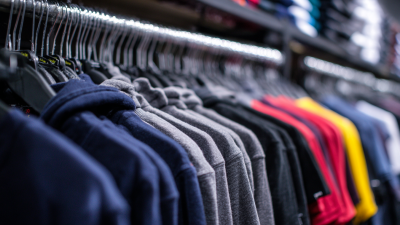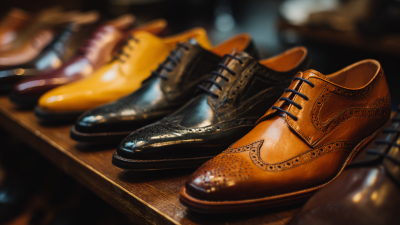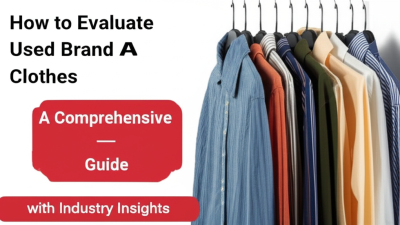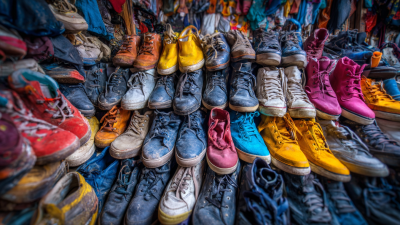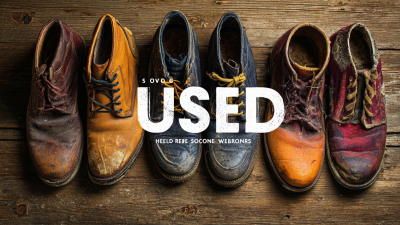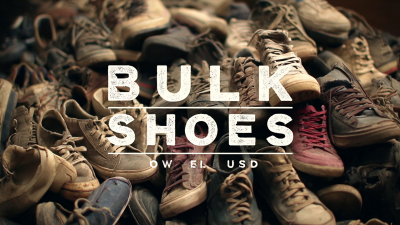Leave Your Message
In 2025, the apparel industry stands at the threshold of significant transformation, driven by evolving consumer preferences and sustainable practices. The demand for Bulk Branded Clothing is projected to surge, with a recent industry report indicating that the global market for promotional apparel could reach approximately $25 billion by the end of this decade. Businesses are increasingly recognizing the value of bulk purchases, not only for cost savings but also for brand visibility and consistency. In this crowded market, the ability to choose the right bulk branded clothing is crucial for companies aiming to enhance their brand image and foster loyalty among their customers.
As organizations strive to differentiate themselves, the importance of high-quality, custom apparel cannot be overstated. According to a survey by the Promotional Products Association International (PPAI), 79% of people can recall the branding on a promotional shirt, highlighting the effectiveness of branded clothing as a marketing tool. Moreover, with a growing emphasis on sustainability, companies are seeking ethically sourced and environmentally friendly options in their bulk apparel selections. This shift not only aligns with consumer values but also enhances brand reputation, making it imperative for businesses to remain informed about the trends and best practices in the bulk branded clothing market moving forward.
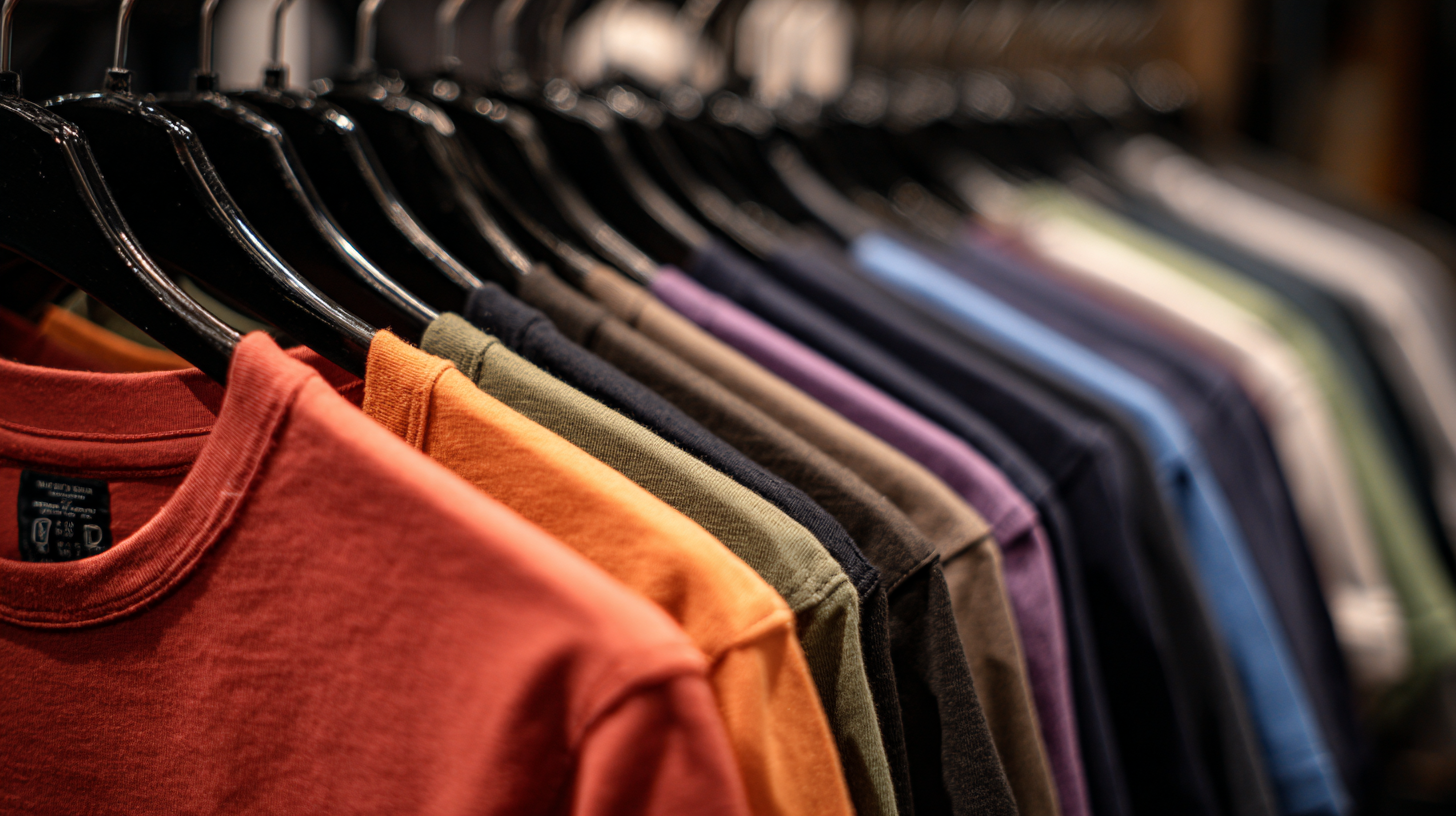
In 2025, the bulk branded clothing market is set to experience significant transformations driven by evolving consumer preferences and technological advancements. According to a report by Grand View Research, the global branded apparel market is projected to reach $1 trillion by 2025, with a compound annual growth rate (CAGR) of 4.5% from 2020 to 2025. This growth is largely influenced by the increasing demand for sustainable clothing options, as consumers are becoming more eco-conscious and seeking brands that prioritize sustainability.
Additionally, the rise of e-commerce continues to reshape how businesses approach bulk purchases. Statista reports that online retail sales in the clothing sector are expected to surpass $600 billion in the U.S. alone by 2025. This shift calls for companies to adapt their branding strategies, leveraging digital platforms to showcase their bulk branded clothing offerings. Moreover, businesses must consider personalization and customization trends, as approximately 30% of consumers express a preference for personalized products, emphasizing the need for suppliers to offer flexible options that cater to individual brand identities and consumer needs.
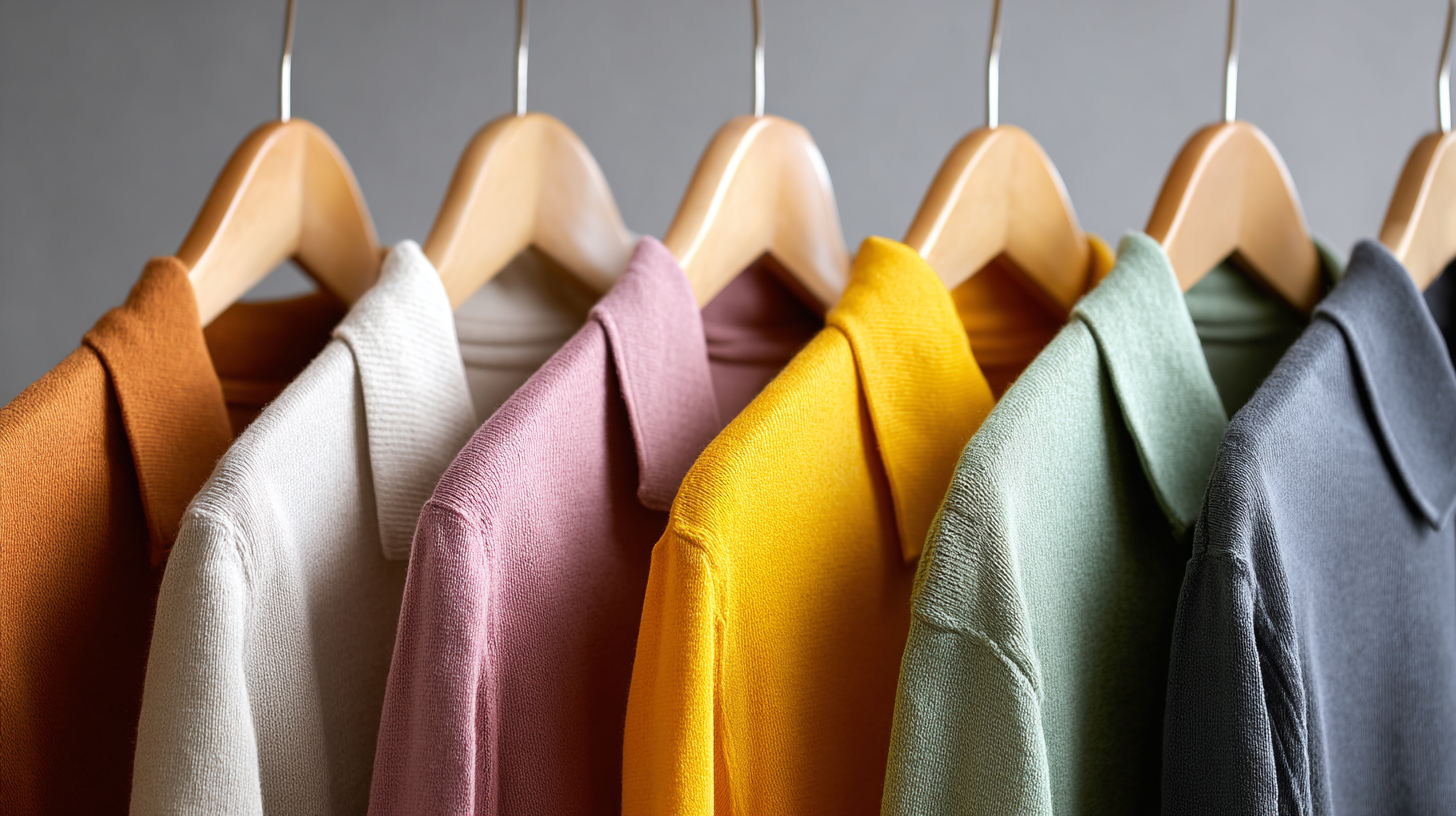 When choosing bulk branded clothing for your business,
evaluating quality vs. cost is crucial, especially in a competitive market like 2025.
According to a report by Grand View Research, the global branded apparel market is expected to reach
USD 600 billion by 2025, emphasizing the need for businesses
to balance their purchases effectively. While lower prices may be tempting, the adage "you get what you pay for"
often rings true. Investing in higher-quality materials can lead to
greater customer satisfaction and brand loyalty, which ultimately affects long-term revenue.
When choosing bulk branded clothing for your business,
evaluating quality vs. cost is crucial, especially in a competitive market like 2025.
According to a report by Grand View Research, the global branded apparel market is expected to reach
USD 600 billion by 2025, emphasizing the need for businesses
to balance their purchases effectively. While lower prices may be tempting, the adage "you get what you pay for"
often rings true. Investing in higher-quality materials can lead to
greater customer satisfaction and brand loyalty, which ultimately affects long-term revenue.
Key metrics to consider in this evaluation process include fabric durability,
stitching quality, and colorfastness.
A survey conducted by the Apparel Export Promotion Council highlighted that 70%
of consumers prioritize quality over price, indicating that opting for well-constructed garments can enhance your brand's
reputation. Additionally, evaluating supplier reliability and
order fulfillment times should not be overlooked, as consistent quality
and timely delivery are essential for maintaining inventory and meeting customer
demands. By prioritizing these metrics, businesses can make informed decisions that balance
quality with cost-efficiency,
ensuring sustainable growth in the clothing sector.
When considering bulk branded clothing for your business, the importance of selecting reliable suppliers cannot be overstated. According to a 2022 survey by the Apparel Manufacturers Association, over 65% of companies highlighted supplier reliability as a critical factor in their purchasing decisions. This statistic emphasizes the need to thoroughly vet suppliers based on their track record, delivery times, and customer service. A supplier with a strong reputation not only ensures timely deliveries but also enhances your overall brand image, fostering trust among your customers.
Additionally, research from Statista reveals that 72% of consumers are willing to pay more for products from companies that prioritize quality and ethical practices. Aligning with reputable suppliers who uphold these values can dramatically impact your brand's perception in a competitive market. Implementing a supplier performance evaluation system based on past experiences and customer feedback can help mitigate risks and ensure that your business is equipped with quality products that support your brand’s vision. With the right partners, you can enhance your inventory while paving a path for long-term success in the ever-evolving apparel industry.
In 2025, sustainability will be a cornerstone for businesses when choosing bulk branded clothing. According to the Global Fashion Agenda, incorporating eco-friendly materials can significantly reduce a brand's carbon footprint, with the potential to lower emissions by up to 30% when utilizing recycled fabrics. Additionally, adopting sustainable practices not only fosters a more eco-conscious image but also resonates with the growing consumer demand for responsible fashion. A study by McKinsey & Company revealed that 67% of consumers believe brands should take a stand on environmental issues, underscoring the necessity for businesses to align their values with those of their customers.
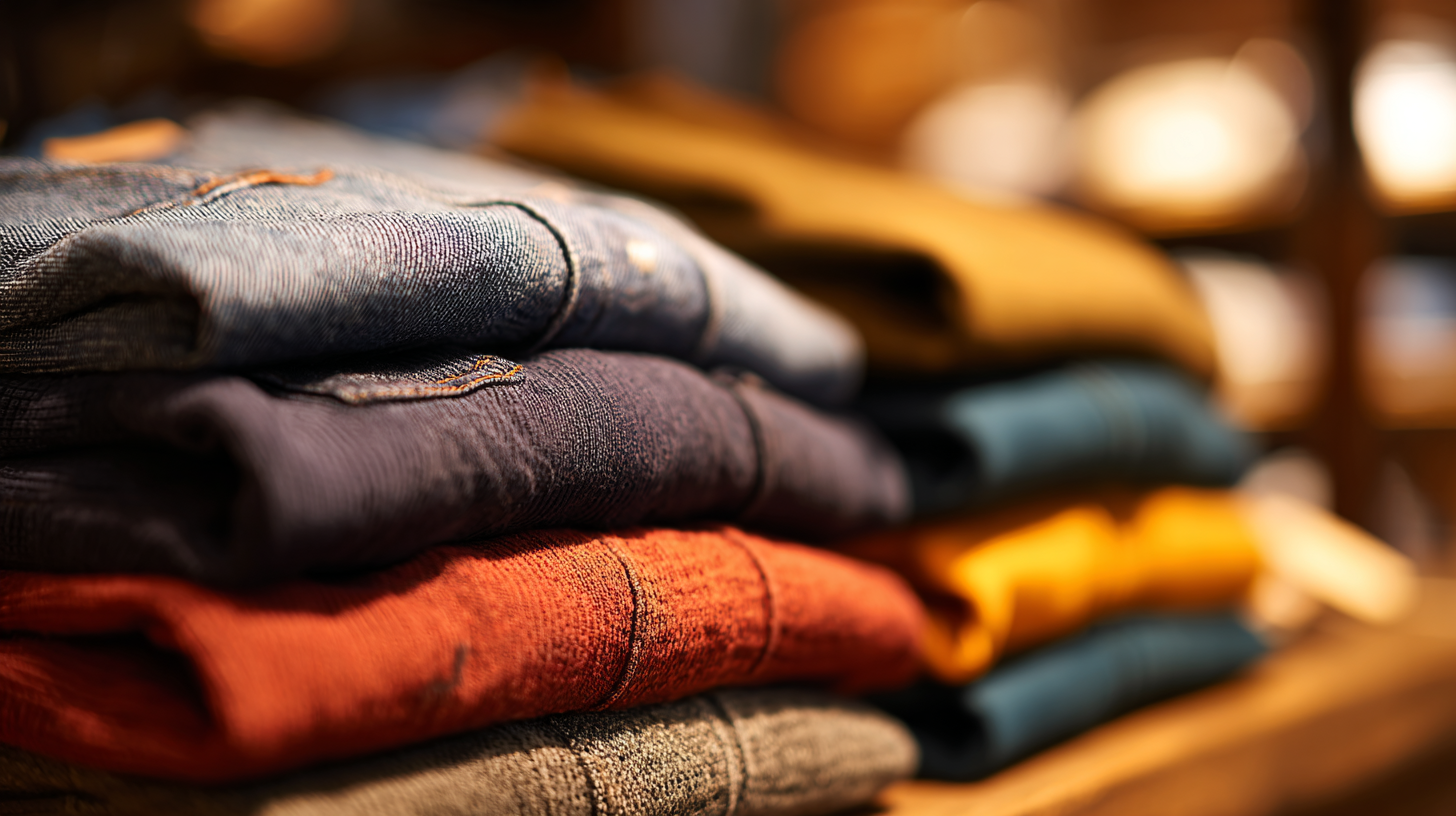
Moreover, opting for sustainable bulk clothing can also yield substantial economic benefits. The Sustainable Apparel Coalition reports that companies embracing transparency and sustainability practices can experience up to a 25% increase in customer loyalty. By investing in eco-friendly clothing options, businesses not only contribute to environmental preservation but also tap into a market that increasingly prioritizes sustainability. As consumers become more educated about the impact of their purchases, aligning branding strategies with eco-conscious choices will be critical for long-term success in the competitive clothing industry.
When selecting bulk branded clothing for your business in 2025, understanding your target audience's preferences is paramount. The shift towards personalized experiences means consumers are increasingly drawn to customized apparel that reflects their identity and values. To effectively connect with your audience, it's essential to conduct thorough market research. Analyze demographic data, social media trends, and customer feedback to identify what styles, colors, and materials resonate most with your ideal customers.
Moreover, consider incorporating sustainable materials and ethical production practices, as today's consumers are more environmentally conscious than ever. Tailoring your clothing line to meet these expectations not only enhances your brand image but also fosters loyalty among customers who appreciate corporate responsibility. By engaging with your audience through surveys or interactive social media polls, you can gather valuable insights that inform your branding strategy, ensuring that your apparel choices align with the specific desires and values of your target market.
| Category | Preferred Material | Popular Item Type | Average Price ($) | Customization Options |
|---|---|---|---|---|
| Corporate Wear | Cotton | Dress Shirts | 25.00 | Embroidery, Screen Printing |
| Sports Apparel | Polyester | T-Shirts | 15.00 | Sublimation, Heat Transfer |
| Casual Wear | Blended Fabric | Hoodies | 30.00 | Embroidery, Custom Labels |
| Promotional Items | Cotton Blend | Caps | 10.00 | Embroidery, Screen Printing |
| Workwear | Heavyweight Cotton | Work Jackets | 45.00 | Reflective Printing |
